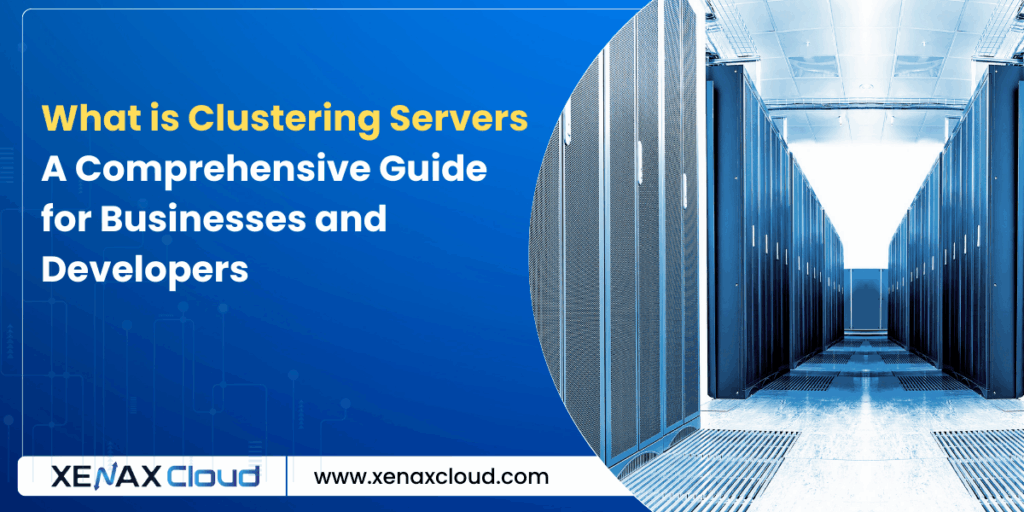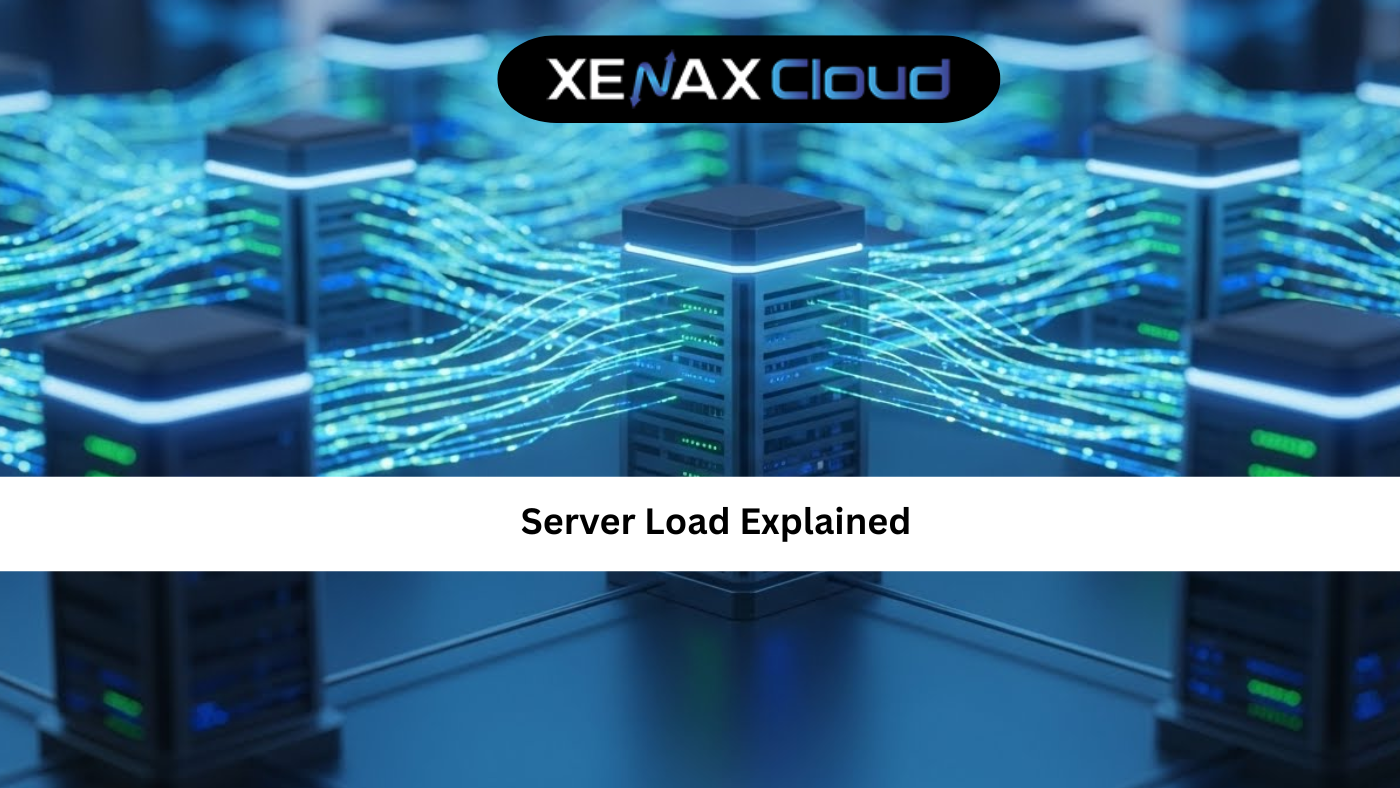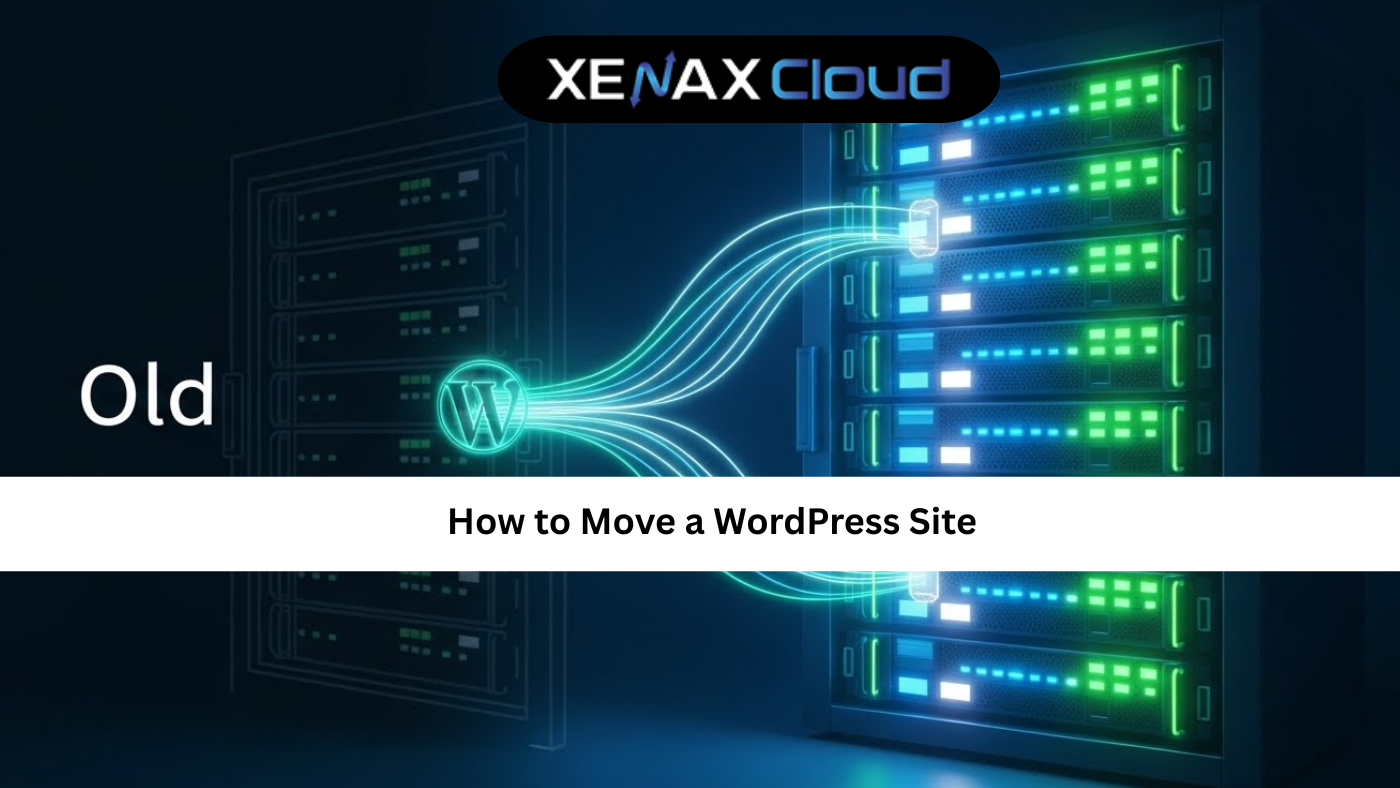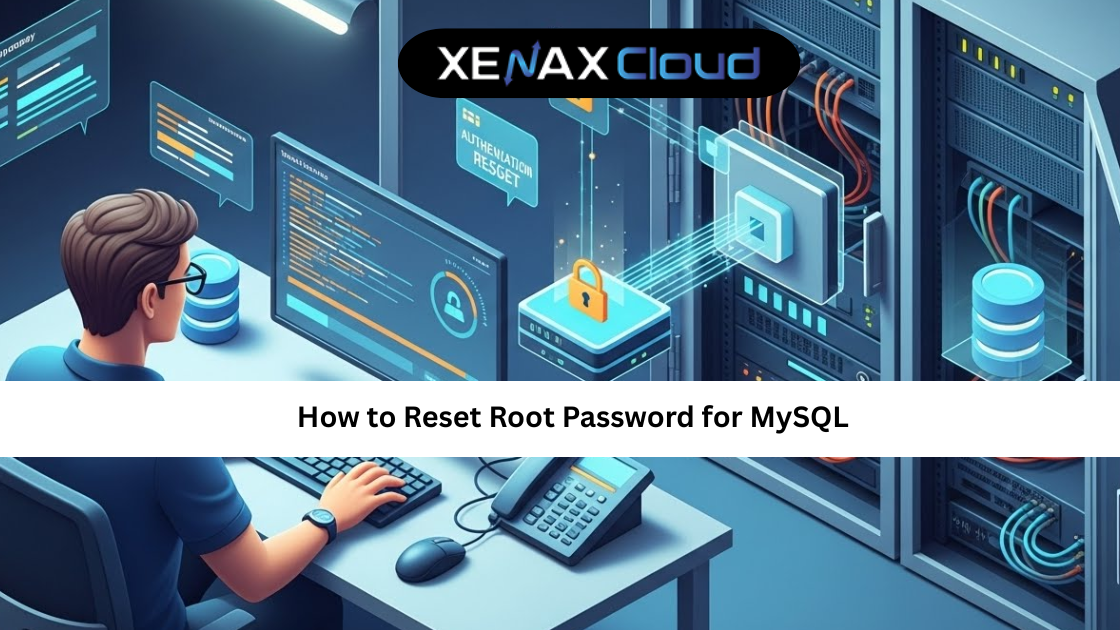Hey, business owners, developers, and IT pros in India, USA, UAE, UK, Germany, Japan, Canada, Switzerland, France, and beyond! The global digital economy is skyrocketing, with India’s digital market projected to hit $1 trillion by 2030 (per NASSCOM) and the global cloud computing market expected to reach $1.6 trillion by 2030 (per Grand View Research). Whether you’re running an e-commerce platform in Mumbai, a fintech app in Dubai, or a gaming server in Tokyo, understanding what is clustering servers can transform how you manage high-traffic applications. With cyberattacks costing Indian businesses ₹2,500 crore annually (per PwC 2024) and strict regulations like India’s DPDP Act, cluster servers and server clusters ensure uptime, scalability, and security for your critical workloads.
Why does this matter? Clustering servers allows multiple servers to work together as a single system, distributing tasks to boost performance, ensure high availability, and handle massive traffic spikes. In this 3000-word guide, we’ll dive into what are cluster servers and what are server clusters, explaining their benefits for businesses in India, USA, UAE, UK, Germany, Japan, Canada, Switzerland, France, and globally. We’ll also show how XenaxCloud’s solutions—like VPS and dedicated servers—make clustering accessible and secure. Let’s get started and unlock the power of server clustering!
What is Clustering Servers?
Clustering servers refers to connecting multiple servers to work as a single, unified system to handle tasks like processing, storage, or hosting applications. These servers, called nodes, share workloads, ensuring high availability, load balancing, and fault tolerance. Unlike a single server, a cluster can manage traffic surges, prevent downtime, and scale seamlessly. XenaxCloud’s VPS and dedicated servers provide the perfect environment for building server clusters tailored to your business needs.
- Key Features:
- Multiple servers (nodes) work together for efficiency.
- Ensures high availability with minimal downtime.
- Balances traffic across nodes for optimal performance.
- Supports scalability for growing applications.
- Enhances security with redundant systems.
Why Businesses Need Cluster Servers
Businesses in India, USA, UAE, UK, Germany, Japan, Canada, Switzerland, France, and global markets benefit from what are cluster servers for:
- High Availability: Ensures apps stay online during failures.
- Scalability: Handles traffic spikes for growing businesses.
- Performance: Distributes workloads for faster response times.
- Security: Redundant nodes protect against data loss.
- Compliance: Meets DPDP Act and GDPR standards for data handling.
XenaxCloud’s VPS and dedicated servers make clustering servers accessible for startups and enterprises.
Benefits of Server Clusters
Here’s why server clusters are a game-changer for your business:
High Availability
- Why It Matters: Ensures apps remain accessible even if a server fails.
- Advantage: Automatic failover keeps services online.
- Use Case: Running a Mumbai-based e-commerce platform with 99.99% uptime.
- XenaxCloud Advantage: Dedicated servers with high-availability clustering.
Load Balancing
- Why It Matters: Distributes traffic across nodes to prevent overload.
- Advantage: Faster response times for users.
- Use Case: Managing a Dubai fintech app during peak trading hours.
- XenaxCloud Advantage: Load-balanced VPS clusters.
Scalability
- Why It Matters: Easily add nodes to handle growing traffic.
- Advantage: Scales without disrupting services.
- Use Case: Expanding a Tokyo gaming server for new users.
- XenaxCloud Advantage: Scalable VPS and dedicated servers.
Fault Tolerance
- Why It Matters: Redundant nodes prevent data loss or downtime.
- Advantage: Ensures business continuity during hardware failures.
- Use Case: Hosting a UK-based SaaS app with zero data loss.
- XenaxCloud Advantage: Fault-tolerant dedicated servers.
Cost Efficiency
- Why It Matters: Clustering optimizes resource use, reducing costs.
- Advantage: Avoids over-provisioning single servers.
- Use Case: A Bangalore startup scaling affordably.
- XenaxCloud Advantage: Affordable VPS plans starting at ₹500/month.
Types of Server Clusters
Understanding what are server clusters involves knowing the different types:
High-Availability (HA) Clusters
- Purpose: Minimize downtime by ensuring failover.
- How It Works: Nodes monitor each other; if one fails, another takes over.
- Use Case: Hosting critical apps like hospital systems in Canada.
- XenaxCloud Advantage: HA clustering on dedicated servers.
Load-Balancing Clusters
- Purpose: Distribute traffic for optimal performance.
- How It Works: A load balancer routes requests across nodes.
- Use Case: Managing an e-commerce site in France during Black Friday.
- XenaxCloud Advantage: Load-balanced VPS.
High-Performance Computing (HPC) Clusters
- Purpose: Handle compute-intensive tasks like AI or big data.
- How It Works: Nodes process tasks in parallel.
- Use Case: Running AI models for a Japan-based research firm.
- XenaxCloud Advantage: High-performance dedicated servers.
Storage Clusters
- Purpose: Provide scalable, redundant storage.
- How It Works: Nodes share storage resources for data redundancy.
- Use Case: Storing customer data for a UAE-based retailer.
- XenaxCloud Advantage: Storage-optimized VPS.
How to Set Up Clustering Servers with XenaxCloud
Here’s a step-by-step guide to setting up clustering servers using XenaxCloud’s VPS or dedicated servers.
Step 1: Choose a Hosting Plan
- VPS Plans:
- Entry-Level: 1 vCPU, 2GB RAM, 50GB SSD, ₹500/month.
- Mid-Tier: 2 vCPUs, 8GB RAM, 100GB NVMe SSD, ₹2,000/month.
- High-End: 4 vCPUs, 16GB RAM, 200GB NVMe SSD, ₹5,000/month.
- Provider: XenaxCloud’s VPS.
- Dedicated Server Plans:
- Entry-Level: Intel Xeon E5, 16GB RAM, 1TB NVMe SSD, 10TB bandwidth, ₹6,000/month.
- Mid-Tier: Intel Xeon E5, 32GB RAM, 2TB NVMe SSD, 20TB bandwidth, ₹12,000/month.
- High-End: Dual Intel Xeon, 64GB RAM, 4TB NVMe SSD, 50TB bandwidth, ₹25,000/month.
- Provider: XenaxCloud’s dedicated servers.
Step 2: Register a Domain
- Secure a .com or regional domain via XenaxCloud’s domains.
- Example:
TechClusterIndia.comfor an India-focused business. - Cost: ₹500–₹2,000/year.
Step 3: Set Up the Cluster
- Choose Clustering Software:
- Kubernetes: For containerized apps.
sudo apt update sudo apt install -y kubeadm kubelet kubectl - HAProxy: For load balancing.
sudo apt install haproxy - Pacemaker/Corosync: For HA clusters.
sudo apt install pacemaker corosync
- Kubernetes: For containerized apps.
- Configure Nodes:
- Provision multiple VPS or dedicated servers.
- Example (HAProxy config):
sudo nano /etc/haproxy/haproxy.cfgAdd:frontend http_front bind *:80 default_backend app backend app balance roundrobin server node1 192.168.1.10:80 check server node2 192.168.1.11:80 check
- Use Case: Setting up a load-balanced cluster for a Dubai e-commerce site.
Step 4: Deploy Your Application
- Static Sites:
- Upload HTML/CSS via cPanel on XenaxCloud’s shared hosting.
- Dynamic Apps:
- Deploy a Node.js app across cluster nodes:
const express = require('express'); const app = express(); app.get('/', (req, res) => res.send('Welcome to XenaxCloud Cluster Servers!')); app.listen(3000); - Use PM2:
npm install -g pm2; pm2 start app.js
- Deploy a Node.js app across cluster nodes:
- Databases:
- Set up MySQL in a cluster:
sudo apt install mysql-server sudo mysql_secure_installation - Configure replication for high availability.
- Set up MySQL in a cluster:
- Use Case: Hosting a SaaS app across a cluster in Germany.
Step 5: Optimize and Secure
- Enable Imunify360: XenaxCloud’s security suite for malware and DDoS protection.
- Use CDN: XenaxCloud’s CDN for faster global content delivery.
- Backups: Set up automated backups for DPDP Act compliance.
- Monitor: Use tools like Prometheus or Zabbix for cluster performance:
sudo apt install prometheus - Use Case: Ensuring uptime for a Tokyo gaming platform.
- XenaxCloud Advantage: Secure dedicated servers with Imunify360.
This setup ensures you can launch clustering servers with ease and efficiency.
Cost of Clustering Servers
The cost of server clusters depends on server specs, number of nodes, and add-ons. XenaxCloud offers competitive pricing:
- Shared Hosting:
- Cost: ₹149/month (shared hosting).
- Use Case: Testing small sites alongside a cluster.
- VPS Hosting:
- Entry-Level: ₹500–₹2,000/month per node (1 vCPU, 2GB RAM, 50GB SSD).
- Mid-Tier: ₹2,000–₹5,000/month per node (2 vCPUs, 8GB RAM, 100GB NVMe).
- High-End: ₹5,000–₹10,000/month per node (4 vCPUs, 16GB RAM, 200GB NVMe).
- Provider: XenaxCloud’s VPS.
- Dedicated Servers:
- Entry-Level: ₹6,000/month per node (Intel Xeon E5, 16GB RAM, 1TB NVMe SSD, 10TB bandwidth).
- Mid-Tier: ₹12,000/month per node (Intel Xeon E5, 32GB RAM, 2TB NVMe SSD, 20TB bandwidth).
- High-End: ₹25,000/month per node (Dual Intel Xeon, 64GB RAM, 4TB NVMe SSD, 50TB bandwidth).
- Provider: XenaxCloud’s dedicated servers.
- Domains: ₹500–₹2,000/year (domains).
- Add-Ons: ₹500–₹2,000/month for Imunify360, CDN, or extra IPs.
XenaxCloud’s clustering servers offer cost-effective solutions for startups and enterprises.
Tools for Managing Cluster Servers
Here are popular tools for managing server clusters:
- Kubernetes:
- Best for: Containerized app orchestration.
- Command:
kubeadm init - Use Case: Managing a SaaS app cluster.
- HAProxy:
- Best for: Load balancing.
- Command:
sudo systemctl start haproxy - Use Case: Distributing traffic for an e-commerce site.
- Pacemaker/Corosync:
- Best for: High-availability clusters.
- Command:
sudo pcs cluster start - Use Case: Ensuring uptime for a fintech app.
- Zabbix:
- Best for: Monitoring cluster performance.
- Command:
sudo apt install zabbix-agent - Use Case: Tracking node health on a XenaxCloud VPS.
- Indian RDP:
- Best for: GUI-based cluster management.
- Use Case: Simplifying setup for non-technical users (Indian RDP).
Best Practices for Clustering Servers
- Plan Node Roles: Assign specific tasks (e.g., compute, storage) to each node.
- Use Load Balancers: Implement HAProxy or Nginx for traffic distribution.
- Enable Monitoring: Use Zabbix or Prometheus to track cluster health.
- Automate Backups: Ensure DPDP Act compliance with regular backups.
- Secure Nodes: Use Imunify360 and firewalls on XenaxCloud’s VPS.
Challenges and Solutions
- Complexity: Cluster setup requires technical expertise. Solution: Use Indian RDP for GUI-based management.
- Cost: Clusters require multiple servers. Solution: Start with XenaxCloud’s affordable VPS plans.
- Compliance: DPDP Act and GDPR require secure data handling. Solution: Use XenaxCloud’s compliant dedicated servers.
- Performance: Improper configuration can slow clusters. Solution: Optimize with XenaxCloud’s NVMe SSDs and CDN.
- Downtime Risks: Node failures can disrupt services. Solution: XenaxCloud’s 99.99% uptime ensures reliability.
Integrating Clustering Servers with XenaxCloud’s Solutions
XenaxCloud’s hosting plans enhance what is clustering servers:
Shared Hosting
- Best For: Small sites or testing environments.
- Features: cPanel, free SSL, ImunifyAV.
- Cost: ₹149/month (shared hosting).
- Use Case: Hosting a blog alongside a cluster.
VPS Hosting
- Best For: Scalable cluster nodes.
- Features: Scalable resources, Linux/Windows support.
- Cost: ₹500–₹5,000/month per node (VPS).
- Use Case: Building a load-balanced SaaS cluster.
Dedicated Servers
- Best For: High-performance cluster nodes.
- Features: Global data centers, Imunify360.
- Cost: ₹6,000–₹25,000+/month per node (dedicated servers).
- Use Case: Hosting an HPC cluster for AI.
Indian RDP
- Best For: Non-technical users managing clusters.
- Features: GUI access for tools like Kubernetes.
- Use Case: Managing clusters remotely (Indian RDP).
Reseller Hosting
- Best For: Agencies managing client clusters.
- Features: White-label hosting, cPanel for clients.
- Use Case: Hosting client apps (reseller hosting).
XenaxCloud’s global data centers ensure DPDP Act and GDPR compliance.

FAQs
What is clustering servers?
Clustering servers connects multiple servers to work as one, ensuring high availability and scalability. XenaxCloud’s VPS supports efficient clustering.
What are cluster servers used for?
Cluster servers handle high traffic, ensure uptime, and scale apps. XenaxCloud’s dedicated servers are ideal for clusters.
How do server clusters improve performance?
Server clusters distribute workloads for faster response times. XenaxCloud’s VPS ensures load-balanced clusters.
Are cluster servers secure?
Yes, with Imunify360 and anti-DDoS protection. XenaxCloud’s dedicated servers ensure secure clustering.
What hosting supports clustering servers?
XenaxCloud’s VPS, dedicated servers, and Indian RDP support server clusters.
Conclusion
Understanding what is clustering servers empowers businesses in India, USA, UAE, UK, Germany, Japan, Canada, Switzerland, France, and globally to build scalable, high-availability systems. Whether you’re exploring what are cluster servers or what are server clusters, XenaxCloud’s VPS, dedicated servers, and Indian RDP deliver secure, cost-effective solutions. Ready to power your apps with clustering? Explore XenaxCloud’s VPS, dedicated servers, or shared hosting today and drive your digital success! Questions? Contact XenaxCloud’s support team now at 04:41 PM IST on September 20, 2025.






